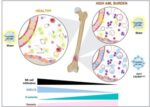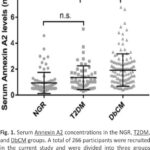Dr Joseph Madu is the Chairman of the Clinical Pharmacists Association of Nigeria (CPAN) a newly formed group of clinical pharmacists in Nigeria. In this exclusive interview with Janet Audu, he urged the Federal Government to prevent the spread of the deadly virus among students in the wake of schools re-opening by placing them on the priority list for vaccination as the vaccines arrive on the shores of the country. Madu, also x-rayed the performance of the Nigerian healthcare system in the face of the global pandemic, as he rated it below expectation due to some internal challenges which have prevented the system from operating effectively like its counterparts in other climes. He has submitted recommendations to be implemented for the progress of the sector.
Below is the excerpt of the interview:
Before the outbreak of the disease in Africa, especially Nigeria, there was heightened fears that the virus will kill millions in the country but this turned out not true considering our experience with other countries. With this development, is it reasonable to say that it is the same infection that killed millions in Europe that killed just a few thousand in Nigeria?
Yes, it is very reasonable to say it is the same disease in Europe that also affects Africans including Nigerians because there is enough evidence to support this claim.
Scientifically, it has been proven that the impact of diseases is largely affected by the demography or genomics of individuals.
In demography also known as the study of populations, the character of the population that influences response to the environment, diseases and medications is known as the genomics of that population.
Therefore, on a scientific basis, it can be said that the same COVID-19 that has killed millions of people in Europe, can be responsible for killing just a few thousands in Nigeria.
As it stands, however, all explanations for the differences in terms of fatality rates between the continents are based on ordinary scientific observations but not complete research.
For instance, some observers believe that AGE as one of the demographics of individuals is mainly one of the main reasons for the differences in death rates in Africa where we have a more youthful population.
The youth can naturally withstand the pressure that comes with the disease. This is based on life expectancy which is very low in Nigeria and most of Africa compared to Europe with more persons in the aged population.
The elderly are more vulnerable to COVID-19. The relative youthfulness in the African population, the constant re-exposure to malaria and other coronaviruses, are said to have prepared the immune system to respond faster, though this has not been proven through any research.
It also appears to have been reported that many Nigerians have been exposed to COVID-19, but have recovered without treatment or are asymptomatic.
Our national counts could not capture such figures because the rate of testing is much lower than in developed nations.
Recently, there were widespread reports from patients that visit community pharmacies and other primary healthcare facilities, of presenting with fever, malaise, loss of smell and taste which are all known to be associated with COVID-19 malady.
Mao et al, 2020 reported the findings from WHO incidence data that COVID-19 infections are highly pandemic in countries where malaria is the least pandemic, and are the least pandemic in nations where malaria is highly pandemic.
This fits with COVID-19 cases in Nigeria where its clinical presentations are mostly mild disease or asymptomatic infections.
How would you assess the Nigerian healthcare delivery system in the management of COVID-19?
In assessing the Nigeria healthcare system in the management of COVID-19, I think I will score the system fair on a scale that ranges from poor to excellent with fair and good respectively in between.
One of the major reasons responsible for the low performance of our healthcare delivery system is the poor or sometimes absent utilization of Pharmaceutical care expertise of clinical pharmacists, as obtainable in most of the countries with the best health indices.
It is still not common to observe patients in our health facilities benefit by having a routine and consistent presence of clinical pharmacists at the patient’s bedside in all our public and private healthcare facilities including centres for the management of COVID-19.
This has resulted and continues to be responsible for some morbidity and mortality as a result of preventable potential and actual drug therapy problems.
Any patient care system in which the expertise of clinical pharmacists is overlooked is bound to perform very poorly.
In what ways have clinical pharmacists demonstrated their roles in COVID-19 management?
Concerning how clinical pharmacists in Nigeria have demonstrated their roles in COVID-19 management, I will say some of the ways include but not limited to the following:
a) Creating public awareness via radio and TV talks, online and print media releases, Social media mass education campaigns about COVID-19, and other means of public health education on the preventive measures, as well as advising the government and her relevant agencies on aspects of Pharmaceutical care of COVID-19.
Nigerian clinical pharmacists have also been involved in educating patients and other healthcare providers on the proper ways of using PPEs and hand sanitisers produced by pharmacists.
b) Clinical pharmacists have been collaborating with both physicians and non-physician healthcare providers to ensure that potential and actual drug therapy problems in COVID-19 patients are appropriately tackled with the overall goal of saving lives and assuring good health through sound application of the Clinical pharmacist expertise.
c) Clinical Pharmacist job mainly involves direct patient care at the Patient’s bedside in hospitals or of ambulatory patients in community pharmacies.
d) However clinical pharmacists have also been involved in providing safe and efficacious medicines as well as ensuring their appropriate usage.
How would you advise the government on the implementation of a consultant cadre for pharmacists in Nigeria?
Regarding the implementation of the consultancy cadre for pharmacists in public health institutions which has already been approved by the federal government.
I will advise the government to immediately:
1) Create vacancies for the intake of pharmacy professionals who are qualified for the cadre.
2) Work with the relevant stakeholders such as PSN, CPAN, PCN, WAPCP, etc. to determine and standardize the scope of practice within a multidisciplinary setting.
3) Formalize job descriptions and key performance indicators for monitoring and evaluation.
4) Establish a structure for full funding or subsidy for the training of new Consultants similar to that of Nigeria Physicians.
This is necessary to sustain the continuity of the cadre.
Going forward, how can the Nigerian healthcare system be well developed?
The Nigerian healthcare system can be well developed by
i) Ensuring that all members of the healthcare team are given a full sense of belonging and permitted to practice as well as grow to the top of their profession as obtainable in nations with the global best healthcare indices.
That way, every healthcare professional will be motivated towards contributing their best for the overall success of the Nigeria healthcare sector.
ii) Healthcare budgets should be properly monitored and strictly tailored toward the intended goals and objectives.
iii) Infrastructure, equipment and the desired manpower should be given adequate attention.
iv) The welfare of all healthcare workers such as physicians and non-physician healthcare providers should be given utmost attention.
Lastly on school resumption, NMA is asking the Federal Government to rescind its decision to curb the spread of infection. Is CPAN in support of this Sir?
On schools reopening, CPAN is partially but not completely in support of NMA asking the FG to rescind its decision to reopen schools.
COVID-19 is a monster, a hydra-headed one with tentacles almost everywhere. To combat it, our government really needs to do more. One fact is that, just like flu, COVID-19 will likely stay with us for a long time. So closing schools indefinitely will be counterproductive.
We should and must rather mitigate the possibility of infection at schools resumption by doing the needful. Vaccinations should be prioritized with health workers first, students and teachers next, then government officials.
Wherever two or three are gathered, there will be a possibility of infection, but a fellowship of men cannot be outlawed.
CPAN only partially supports the advice of NMA to FG because there is a big difference between adult gatherings such as markets and worship centres and those of children gathering such as schools.
Adults can easily observe COVID-19 preventive measures, but little children in nursery and primary schools will always closely interact with themselves.
Therefore reopening of schools such as universities and secondary schools can go on, while nursery and primary schools reopening can be kept on hold for now.
Mandatory provision of a safe learning environment must be provided by the government and other stakeholders.
Improved awareness among the populace cannot be over-emphasized. Many people visit community pharmacies for both medication-related advice and healthy living education. The use of community clinical pharmacists in public awareness creation on COVID-19 cannot be over-emphasised.
When the vaccines become available, licensed and registered community Pharmacists should also be utilized to make the vaccination administration more accessible to the public just as it is currently done in the US, UK etc.
Schools closure must never be indefinite because the number of probable future COVID-19 waves is unknown. No evidence to show that COVID-19 thrives more in schools or in the students’ population.
In this same Nigeria, private universities have been reported to be running an almost hitch-free calendar in spite of COVID-19, and this is possible because of measures put in place such as online classes etc.





